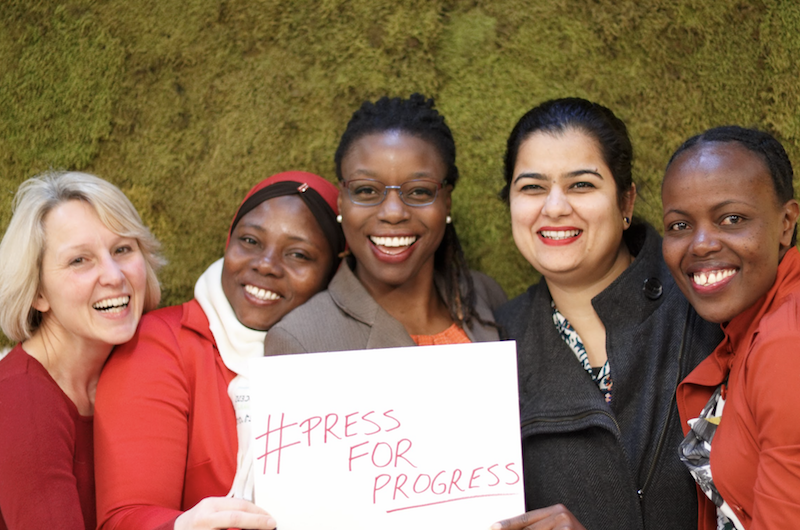
According to the 2017 World Economic Forum's Global Gender Gap Report, gender parity is still 200 years away. However closing the gender gap, especially economically, isn’t just a must for social progression. As the World Economic Forum also points out, it could add billions of dollars to economies.
Women Are Key To Sustainable Sector Transformation
Solidaridad’s Gender Task Force Leader, Njeri Kimotho explains: “across most of the sectors in which we work, women are not part of the formal economy."
Only if we manage to structurally include women and girls – who make up over 50% of the population – can we truly achieve sustainable sector transformation.
An Inclusive Approach – Involving Men & Women
Solidaridad implements a gender-inclusive approach to ensure no one is left behind. Central to this is the value of “togetherness.” As Njeri explains: “we need both men and women involved to make a difference." She says:
I know I’ve done my job championing the role of women when a man says, ‘let that woman speak’.”
Stephanie Donu-Sarpong, West Africa Gender Focal Person outlines in the video, empowering women through education, training and capacity building is necessary to ensure sector sustainability.
Many of the farmers in Ghana’s cocoa sector are old and aging. Furthermore, many young people are moving to the cities. If we don’t educat
e women to take over key roles, and provide financial incentives for doing so, there will be supply issues in the future.
Female Economic Independence Is Good For Everyone
Investing in women’s economic potential effectively contributes to sustainable economic growth. In fact, the global female economy is estimated to have more than twice as much growth potential than the markets of China and India together. Moreover, women typically invest 90% of their income on things that directly benefit their families such as food, medicine and education.
Precious Greehy, Regional Gender Advisor for Southern Africa, explains: “When you invest in women, women invest back in their communities. This means better nutrition for their children, better access to medical care, and better education." She says:
Empowering women financially has a positive ripple effect across society.
Meet The Gender Task Force Team
Watch the video to meet more of the Solidaridad Gender Task Force team and learn why gender inclusivity is key to sustainability. Join the movement on Twitter and #pressforprogress.
